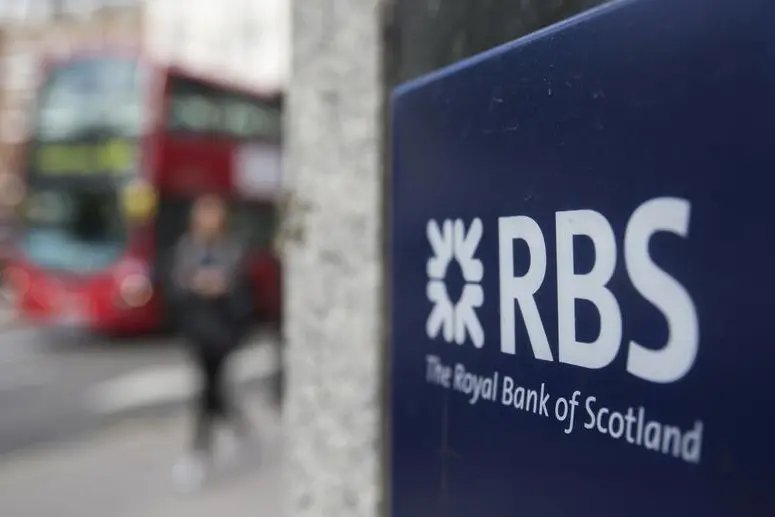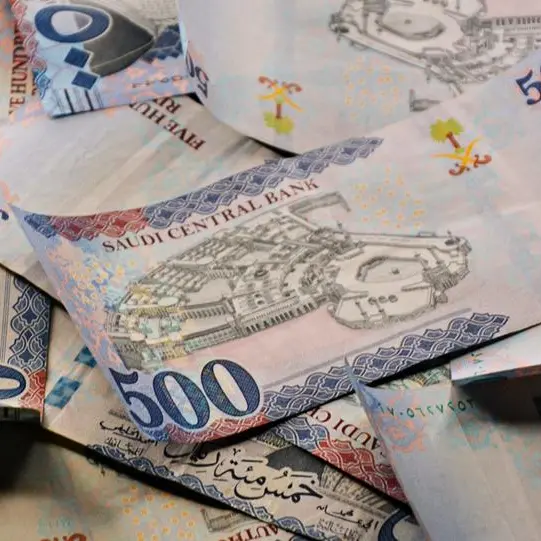PHOTO
LONDON, (Reuters Breakingviews) - Royal Bank of Scotland has given long-suffering investors a taste of what normality looks like. The government-controlled UK lender delivered a 47 percent rise in net profit due to fewer one-off charges. Greater savings could see the bank hit its 12 percent return on tangible equity (ROTE) target by 2020, implying a share price rise of around one half. That gives the UK Treasury a reason to defer planned sales.
After years of waiting and tens of billions of pounds in losses, RBS announced its first annual cash dividend plus a special payout which, combined, equate to a decent enough 4.5 percent yield. A chunky 16.2 percent common equity Tier 1 capital ratio - above a 14 percent target - hints at more capital returns to come.
The government, which is slowly offloading a 62 percent stake, may want to hold fire despite an expected 2.5 billion pounds of share sales this year. True, shares trading at a 15 percent discount to tangible book already price in some of the future improvement, given the lender managed a puny 4.8 percent ROTE in 2018, whereas its cost of capital is probably around 10 percent. But self-help could see returns more than double.
Assume the bank hits its target of cutting costs to 6.4 billion pounds by 2020 which, despite representing some 3 billion pounds in savings, looks doable next to the 6 billion pounds the bank has shed since 2016 due to lower one-off charges. Then, projecting merely flat revenue, a 27 percent tax rate and estimated tangible book value of 35 billion pounds, RBS could next year exceed its 12 percent ROTE target, according to a Breakingviews calculation. The shares could plausibly rise to 359 pence, a 47 percent increase, assuming they then trade at the 1.2 times tangible book value consistent with that return.
The biggest risks are a chaotic departure from the European Union, which could push up loan losses, or a hard-left Labour government, which might tamper with management. That puts the Treasury on the spot. Selling now would save the public purse if the worst comes to pass, but invite criticism later on if the shares soar. Holding on would be a bet that Brexit will be soft, and the public thankful.
CONTEXT NEWS
- Royal Bank of Scotland on Feb. 15 reported 2.1 billion pounds in net profit for 2018 compared with 1.41 billion pounds for the previous year, on revenue which rose by 2 percent year-on-year to 13.4 billion pounds.
- The bank’s pre-tax profit increased by 50 percent year-on-year to 3.4 billion pounds, thanks to fewer one-off costs and sharply lower operating expenses.
- RBS’s common equity Tier 1 capital ratio was 16.2 percent, compared with 16.7 percent three months earlier. Return on tangible equity was 4.8 percent for the period, up from 2.2 percent a year ago.
- The lender proposed a final dividend of 3.5 pence per share and a special dividend of 7.5 pence per share.
- RBS shares were largely unchanged at 242.5 pence as of 0865 GMT on Feb. 15.
(( Christopher.G.Thompson@thomsonreuters.com ; Reuters Messaging: Christopher.G.Thompson.thomsonreuters.com@reuters.net ))
© Reuters News 2019





















